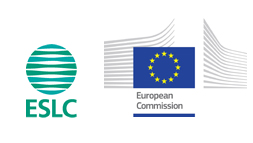One step towards a new European language policy
An interview with Norman Verhelst, ESLC Director 2008-2010
 How did the European Survey on Language Competences come about?
How did the European Survey on Language Competences come about?
The study originated from the political intention to construct language indicators. It is a comparative study to construct an overview of the knowledge and mastering of foreign languages in Europe. This dates back to a decision of the European Council of Ministers in 2005.
Which foreign languages are being tested and who is the target group?
We will test five European languages: English, French, German, Italian and Spanish, with every participating country taking tests in two of these languages. The target group are 15-17 year old pupils.
Has there ever been a comparable study of language skills?
No. During the PISA study there were plans to do such a study for English, but this was cancelled due to financial reasons.
How will the survey work?
There are two parts of the Survey on Language Competences: One is the language test, the other is the background questionnaire. The questionnaire is based on the reflection of the main concerns of the European Commission concerning the quality of the education in foreign languages. What we will try to do is to see if there are differences in performance which are related to differences in the kind of initiatives countries take to foster the learning of foreign languages.
Will this give us a ‘league table’ showing which are the best and worst
performing countries?
What we will do is to give a general impression of the knowledge of foreign languages in the participating countries. The European Commission said that the aim is not to create league tables or rankings, but, as soon as you start to give results, a sort of ranking will be created automatically.
Why are some European countries not participating in the study?
Unfortunately, the current economic crisis means that some countries cannot take part.
Do you expect the findings of the survey to be controversial?
In some countries, for example Germany, the main findings of the PISA study have resulted in a controversy about the education system. Nobody expected that Germany and other countries would be so low in the ranking. I cannot exclude that similar things will happen, but comparisons between countries will be more difficult in our survey, and the outcomes are unlikely to be so politically charged.
How do you go about planning and carrying out the study? And how do you
make sure that the results will be both valid and reliable?
The whole system will be tested in February and March 2010 when the Field Trial takes place. There will be reports on reliability. One of the most important tests of validity is to show that the tests are comparable across languages. The results of the English and, say, the Spanish test must be comparable. In order to ensure this, we will use can-do statements based on the Common European Framework of Reference for Languages (CEFR) to place the performances of the students. Validity is guaranteed by the fact that the principles of construction are highly comparable. They are all based on the CEFR, and all members of the consortium are experts in the field of language testing.
Do you think that there are different approaches to learn a foreign language in different countries? What could be the influence of cultural factors concerning this?
We will find some influence, that is for sure! But you must be aware that the proportion of the results that you can attach to cultural factors is always relatively tiny. This is one of the results of nearly all international studies. We will find some useful results, but they will not be spectacular in the sense that within a couple of years, a country will make a quantum leap if it changes its educational system.

